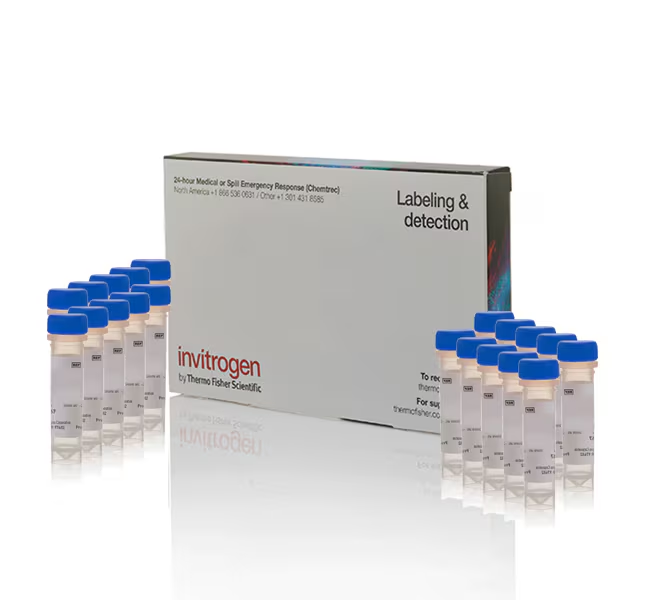
CM-H2DCFDA is a chloromethyl derivative of H2DCFDA, useful as an indicator for reactive oxygen species (ROS) in cells. This indicator exhibits much better retention in live cells than H2DCFDA. CM-H2DCFDA passively diffuses into cells, where its acetate groups are cleaved by intracellular esterases and its thiol-reactive chloromethyl group reacts with intracellular glutathione and other thiols. Subsequent oxidation yields a fluorescent adduct that is trapped inside the cell, thus facilitating long-term studies.
ROS Indicator Specifications:
• Excitation: ∼492–495 nm
• Emission: 517–527 nm
• Product is air sensitive and should be stored under dry argon or nitrogen
• Product may be dissolved in DMSO, DMF, or ethanol for use
• Indicator is cell permeant (cell loading protocols are available in the literature)
• Fluorescence can be monitored using a flow cytometer, fluorometer, microplate reader, or fluorescence microscope, using excitation sources and filters appropriate for fluorescein
Find more ROS indicators
We offer an assortment of Molecular Probes™ products for the generation of reactive oxygen species (ROS), including singlet oxygen, superoxide, hydroxyl radical and various peroxide and hydroperoxides, as well as for their fluorometric detection in solution. Review Generating and Detecting Reactive Oxygen Species—Section 18.2 in the Molecular Probes™ Handbook for more information on these products.
Dissolve the dye using high-quality, anhydrous dimethylsulfoxide (DMSO), dimethylformamide (DMF), or 100% ethanol to prepare stock concentration up to 5 mM. Working solutions should be freshly prepared. This probe oxidizes readily in solution thus presence of moisture will facilitate the decomposition of the dye.
| Code | Description |
|---|---|
| C6827 | Catalog Number: C6827 |

